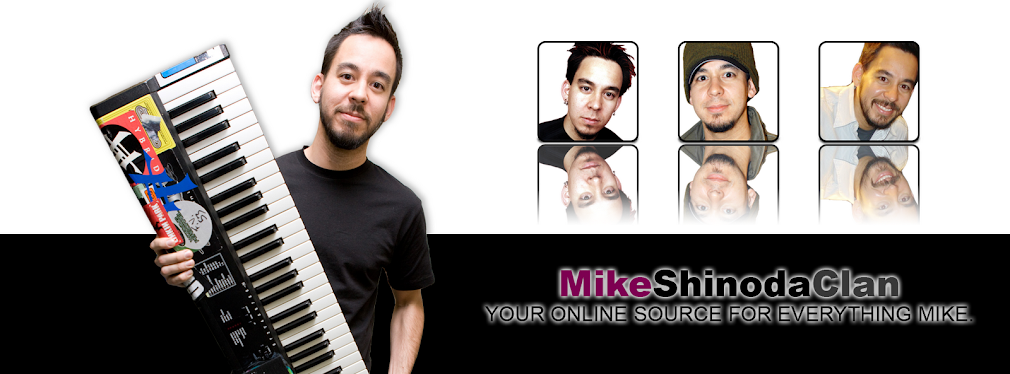Friday, February 11, 2005
The Mellower Half of Linkin Park
March 2003
Mike Shinoda is new metal's hottest MC
During Ozzfest 2001, which accounted for just a handful of their 324 live performances that year, Linkin Park broke ground on a new record in a studio they built in the back of their tour bus. "The space was probably about eight feet square," says Mike Shinoda, 26, the mellower half of Linkin Park's vocal assault squad. "It was a little bit claustrophobic, but we hammered out some great ideas." It was during these sessions that Shinoda solidified his role as the band's de facto guru, organizing one-on-one sessions among the six bandmates and recording the seeds of Meteora, their follow-up to the 14 million-selling [Hybrid Theory]. Shinoda checks in from Linkin Park's Los Angeles studio.
Did your parents play music for you when you were growing up?
My parents didn't listen to anything. If they did, they'd listen to show tunes or country. One of the first things I got really excited about was Run-DMC's second album, King of Rock, around 1985.
Who turned you on to that?
A friend played a song or two off a tape for me. Then I got into the Beastie Boys' License to Ill and LL Cool J's Bad.
Did you get immersed in hip-hop culture and dress gangsta?
Not to that extent. I was living in Southern California, and so the whole New York hip-hop style wasn't really happening out here. It was the L.A. style -- kids were more into Ice-T at that point.
You took piano lessons as a kid. Whose idea was that?
My mom made me start taking piano when I was about six. At first I went because my mom told me to -- I wasn't that excited about it. Eventually, though, I got really into it.
What did you like to play?
When I was about thirteen, I told my teacher, Eileen, I wanted to get more into playing jazz and blues and maybe hip-hop. She said she couldn't help me out with that because that wasn't her training. She said, "Maybe you just wanna get a keyboard and start learning those things on your own." I thought that was really big of her to say, and definitely led to an important point in my life where I bought a keyboard. Then I got a sampler, started making beats and playing around with MIDI and digital-based music.
What were you sampling?
I didn't know anything about old-school rock & roll or blues, but I'd hear a B.B. King song and just think it was the greatest thing ever. I always ended up taking those influences and making hip-hop beats out of them. So I put my bluesy piano to a sampled beat and, eventually, I started rapping over it.
How good a pianist are you now?
Back in the day, I was really into it -- I took theory for ten years. But when I started getting into the digital stuff, I traded a little bit of the dexterity for more technical knowledge. Eventually that's why Brad [Delson, Linkin Park's guitarist] and I got together -- I played a tiny bit of guitar and keys, and he was really into song structure and guitar. So the two of us hung out, and that was the beginning of Linkin Park.
What was that scene like? How focused were you guys?
For the most part, we made a lot of joke songs. Gangsta rap had just poked its head out, and we made a lot of joke gangsta-rap songs. They were all about smoking weed and being pimps, and those were two things we were totally unfamiliar with. Like with a lot of suburban kids, there was an element of voyeurism there -- I had never been down to Long Beach, y'know?
What drugs inspire a good song?
We're not straight-edge, but we don't party that much.
Why not? You guys are rock stars.
It was like that even growing up. We'd rather go to somebody's house and write a song than go to a party. At parties you knew what was going to happen. You knew who was going to get drunk. But when we got together to write songs, we never knew what was going to happen. It was much more exciting.
How does the band write a song?
We get together, me and somebody else, and in a one-on-one session throw down all the ideas we can. I find that the guys really respond when it's just attention on them and their ideas. Then we go back and forth and build momentum from there. It's very fluid, and it lends itself to capturing moments of spontaneity without having to jam with the whole band.
So you're the ringleader here.
I wouldn't say ringleader, because I'm not a heavy-handed dictator type, or at least I try not to be. I'm just trying to push them to do their best.
C'mon. You're the main man.
Brad calls me the glue.
thanks to lptimes.com













0 comments:
Post a Comment